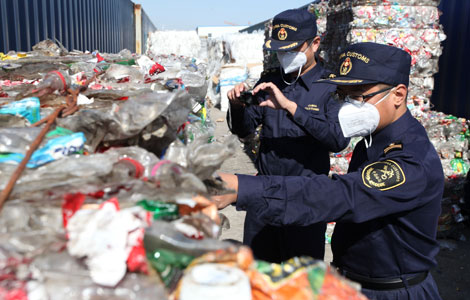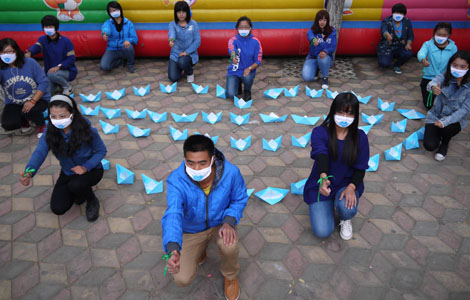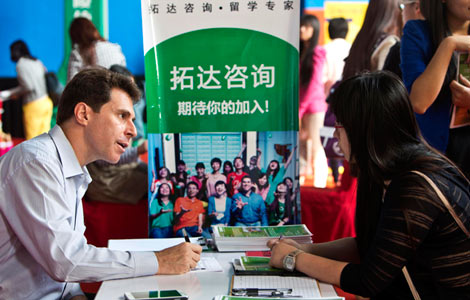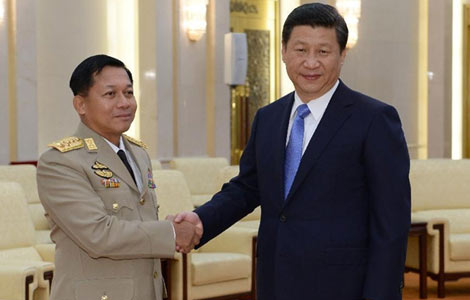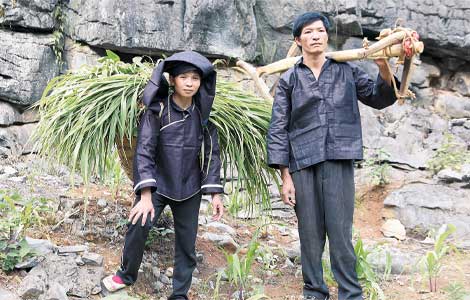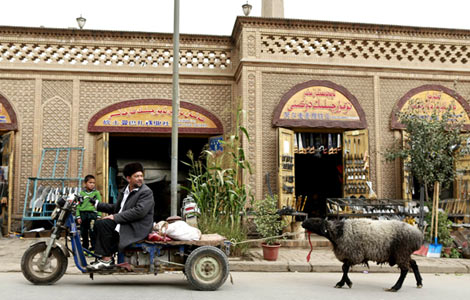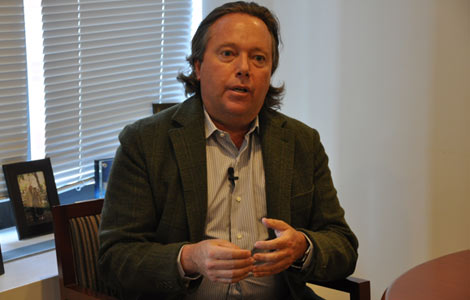Agency directs TCM production to ensure safety of consumers
Updated: 2013-10-17 07:23
By Shan Juan in Beijing, Ma Chenguang and Zhang Jun in Bozhou, Anhui (China Daily USA)
|
||||||||
The China Food and Drug Administration is attempting to improve how traditional Chinese medicine is produced with the help of a host of government agencies.
The latest move in a bid to help ensure TCM consumer safety and product quality came after the administration sampled boiled-down pieces of TCM herbal medicines from four Chinese provinces, including Anhui and Gansu, and found that 22 of 397 batches were processed improperly using methods such as "sulfur smoking" and coloring medicines with banned chemicals.
In a directive publicized by the administration at a news conference on Wednesday, a number of processing methods were banned, such as using sulfur in smoking Chinese herbs.
The use of sulfur has been a traditional practice in processing Chinese herbs. It was used to kill or curb pests and mildew on the herbs and to make the herbs appear more attractive. In the administration's directive, those caught using illegal processing methods will be severely punished.
The administration is partnering with other government agencies, including the ministries of agriculture, commerce and industry and information technology.
"Adulteration and other illegal processing practices of TCM raw materials are hurting the market and consumers. The latest directive will help correct the situation, ensure the quality of TCM medicine and boost the healthy development of the TCM industry," said Yan Jiangying, the administration's spokeswoman, at the conference.
Yan said that by clearly defining the responsibilities of those involved in the TCM industry, such as local government administrations as well as TCM herb planters, processors and producers, the administration's directive will be wide-reaching.
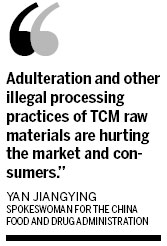
"Practitioners caught using illegal practices will be cleared from the market," she pledged, adding that government supervision, such as raids on farms and processing factories, will be strengthened to better enforce the directive.
China has 17 major markets for raw materials used in TCM - including in Bozhou, Anhui province, and An'guo, Hebei province - that will be required to play important roles in helping to enforce the directive, she said.
Han Zhijun, head of the science and education sector for the Bozhou Pharmaceutical Development Bureau, said the annual trade volume in the Bozhou Chinese Herbal Medicines Market is worth more than 20 billion yuan ($3.27 billion). Herbs such as salvia, licorice, honeysuckle, antler, cordyceps and ginseng are in high demand, he said.
"Exported materials include mainly radix astragali, root of peony, medlar, bellflower and salvia, and countries that buy these materials are Japan, South Korea and other Southeast Asian countries," said Xu Jing, manager of the quality management division for Kangmei (Bozhou) Pharmaceutical Co Ltd.
Major buyers are hospitals, pharmaceutical companies and pharmacies throughout the world, he added.
But processing methods such as sulfur smoking have been curtailed in Bozhou thanks to efforts in raising awareness among herb dealers, Xu said.
In 2003, the national administration launched measures for the Bozhou market to curb the use of sulfur. A Bozhou government task force was created to ensure product quality.
Liang Jingtang, head of the regulatory division of the Bozhou Food and Drug Administration, said sulfur smoking is no longer widely used in processing herbs there after it intensified education and implemented special rectifications.
(China Daily USA 10/17/2013 page5)
Most Viewed
Editor's Picks
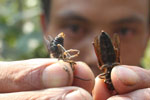
|

|

|

|

|

|
Today's Top News
US debt impasse ending, Obama to sign bill
Facebook goes fishing in China
Michigan auto czar leading trade trip to China
Yuan gains the most in 20 years
Tibet avalanche claims 4
First interprovince subway route opens
US expert finds job 'rewarding'
Trending news across China
US Weekly

|

|
